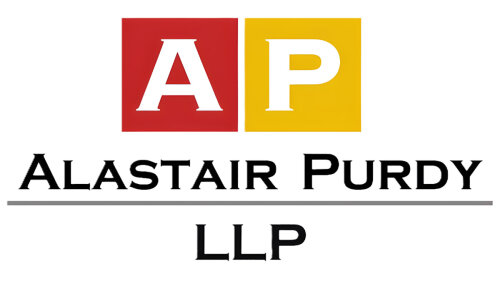Best Landlord & Tenant Lawyers in Galway
Share your needs with us, get contacted by law firms.
Free. Takes 2 min.
Free Guide to Hiring a Real Estate Lawyer
List of the best lawyers in Galway, Ireland
About Landlord & Tenant Law in Galway, Ireland
Landlord and tenant law in Galway is governed by a combination of national legislation, such as the Residential Tenancies Act 2004-2021, and local regulations. These laws are designed to ensure fair treatment for both landlords and tenants, outlining their respective rights and responsibilities. In Galway, the competitive nature of the housing market necessitates a clear understanding of these legal frameworks to avoid disputes and ensure a smooth rental experience.
Why You May Need a Lawyer
There are several situations where you might need legal advice regarding landlord and tenant issues in Galway. Some common scenarios include disputes over lease terms, issues related to the return of security deposits, eviction notices, claims for unpaid rent, or breaches of tenancy agreements. Additionally, both landlords and tenants may require legal assistance when drafting or reviewing lease agreements to ensure that all terms comply with local laws. Legal support can help in navigating these disputes and protecting your rights.
Local Laws Overview
Galway, like the rest of Ireland, adheres to the Residential Tenancies Act, which outlines the primary legal framework for landlord and tenant relationships. Key aspects of these laws include rent control regulations, the requirement for landlords to register tenancies with the Residential Tenancies Board (RTB), and rules around eviction notices and processes. Rental terms and conditions must comply with these statutory requirements, and additional local bylaws may also apply, particularly in relation to housing standards and safety regulations.
Frequently Asked Questions
What rights do I have as a tenant?
Tenants have the right to a property that is in good and safe condition, the right to privacy, and protection from unlawful rent increases and unlawful eviction. They are also entitled to details of their tenancy terms in written form.
Can my landlord increase my rent?
Yes, but rent increases are regulated. Landlords can typically increase rent once every 12 months, provided the increase is in line with market rates, and they must give proper written notice of any change.
What should I do if my landlord is not returning my deposit?
If a landlord refuses to return your deposit, firstly ensure there's no valid reason for withholding it (such as unpaid rent or damages). If not, you can file a dispute with the Residential Tenancies Board (RTB) for resolution.
How much notice must a landlord give to terminate a tenancy?
The notice period a landlord must give depends on how long you have been renting the property. For example, less than 6 months requires 28 days' notice, while over 4 years requires 180 days' notice.
What obligations do I have as a tenant?
Tenants are obligated to pay rent and bills on time, maintain the property well, avoid causing damage or nuisance, and comply with the terms outlined in the tenancy agreement.
Can a tenant make changes to the property?
Generally, tenants must obtain the landlord’s written permission before making any alterations or improvements to the property.
What is the RTB and what does it do?
The Residential Tenancies Board (RTB) is a statutory body that operates a national tenancy register, offers dispute resolution services, and provides information and research services to tenants and landlords.
How are disputes between landlords and tenants resolved?
Disputes are often resolved through mediation or adjudication services provided by the Residential Tenancies Board. Legal assistance may be sought if disputes cannot be amicably settled.
What happens if a tenant breaches the lease terms?
If a tenant breaches any terms of the lease, the landlord may issue a written warning. Persistent breaches could lead to eviction proceedings, provided proper notice is given according to law.
How can I ensure I am protected when signing a new lease?
Review the lease carefully, ensuring it complies with Irish law, and consider seeking legal advice to ensure your rights are adequately protected before signing.
Additional Resources
For additional help, consider consulting the following resources:
- Citizens Information: Offers comprehensive guidance on housing rights and legislation.
- Residential Tenancies Board (RTB): Provides information on tenancy rights, dispute resolution services, and more.
- Local Legal Practitioners: Lawyers specializing in property law can offer personalized legal advice.
- Threshold: A housing charity that offers support and advocacy for tenants.
Next Steps
If you believe you require legal assistance with a landlord and tenant issue in Galway, consider taking the following steps:
- Identify Your Issue: Clearly outline the problem or query you have regarding the tenancy.
- Gather Documentation: Collect any relevant documents such as your lease agreement, correspondence with your landlord, and any related notices.
- Consult with a Lawyer: Seek out a local lawyer who specializes in landlord and tenant law for advice tailored to your situation.
- Utilize Mediation Services: If appropriate, engage with mediation services through the Residential Tenancies Board to resolve disputes out of court.
Lawzana helps you find the best lawyers and law firms in Galway through a curated and pre-screened list of qualified legal professionals. Our platform offers rankings and detailed profiles of attorneys and law firms, allowing you to compare based on practice areas, including Landlord & Tenant, experience, and client feedback.
Each profile includes a description of the firm's areas of practice, client reviews, team members and partners, year of establishment, spoken languages, office locations, contact information, social media presence, and any published articles or resources. Most firms on our platform speak English and are experienced in both local and international legal matters.
Get a quote from top-rated law firms in Galway, Ireland — quickly, securely, and without unnecessary hassle.
Disclaimer:
The information provided on this page is for general informational purposes only and does not constitute legal advice. While we strive to ensure the accuracy and relevance of the content, legal information may change over time, and interpretations of the law can vary. You should always consult with a qualified legal professional for advice specific to your situation.
We disclaim all liability for actions taken or not taken based on the content of this page. If you believe any information is incorrect or outdated, please contact us, and we will review and update it where appropriate.

















